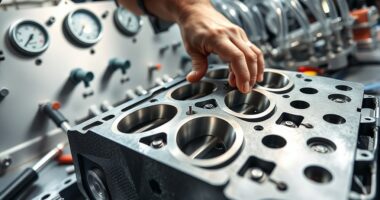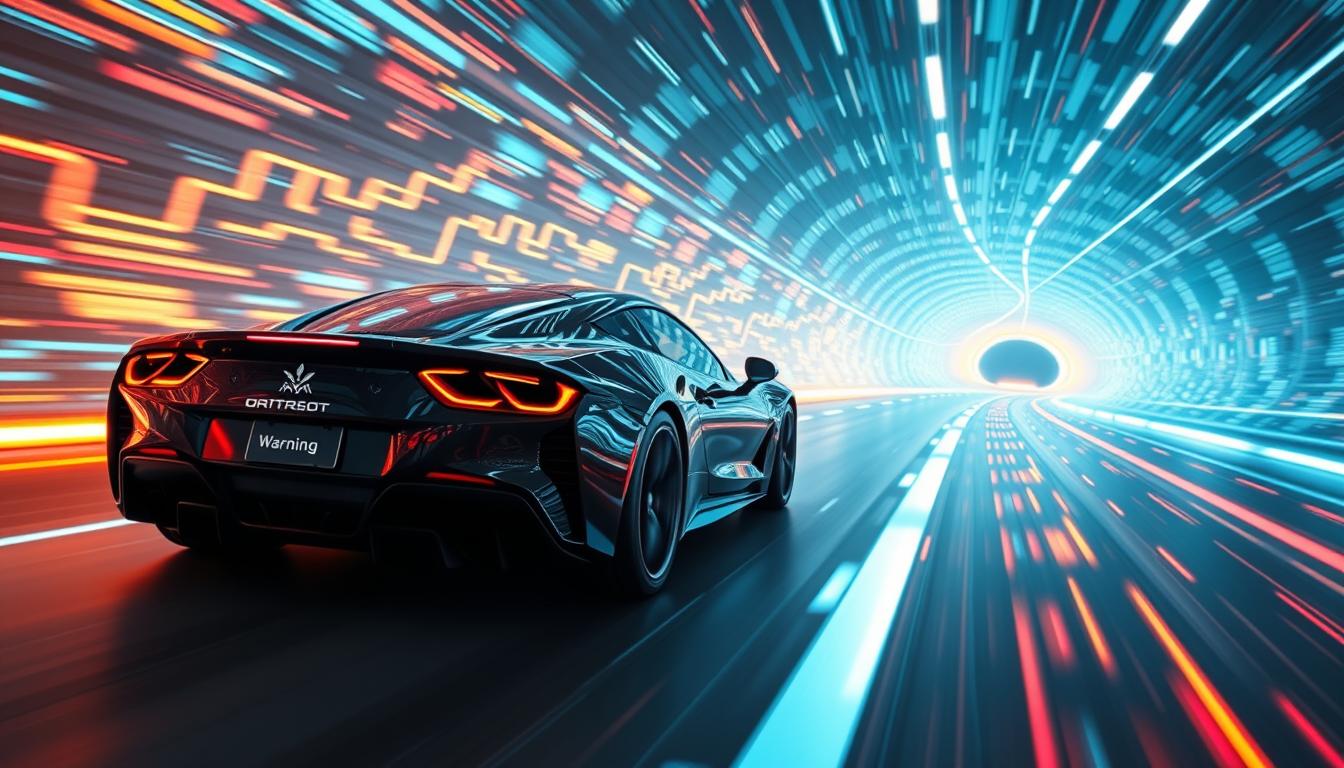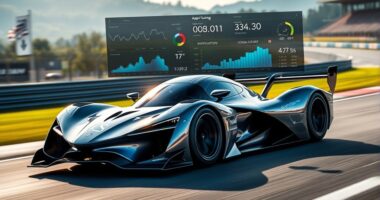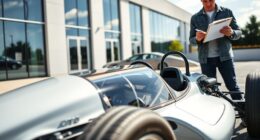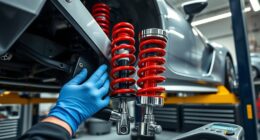AP Tuning now offers software-based engine tuning solutions that let you boost your vehicle’s performance quickly and affordably. With these tunes, you can increase horsepower, torque, and improve throttle response without hardware changes. They also allow you to customize sound, drive modes, and fuel efficiency, making it easy to tailor your car to your preferences. If you want to discover how these software upgrades can transform your ride, there’s more to explore below.
Key Takeaways
- AP Tuning offers software-based performance upgrades, enabling vehicle customization without hardware modifications.
- Their tuning solutions increase horsepower, torque, and engine responsiveness for a more dynamic driving experience.
- The software tuning process is quick, simple, and compatible with popular vehicle brands like VW, Audi, Subaru, and BMW.
- Users can select from pre-set or custom maps to optimize performance, economy, or a balance of both.
- AP Tuning’s software tuning typically preserves vehicle warranty and complies with regulations, avoiding hardware-related issues.

AP Tuning has announced the launch of its new software-based tuning solutions, offering vehicle owners a cost-effective and flexible way to boost performance. Instead of investing in expensive hardware upgrades, you can now enhance your vehicle’s power and efficiency through simple software adjustments. This approach is generally more affordable, making it accessible whether you’re looking for a slight horsepower increase or a more substantial boost. Software tuning allows for a customizable experience, enabling users to select specific performance goals tailored to their driving style and needs. With software tuning, you can switch between different performance maps or modes with ease, giving you the flexibility to prioritize power, economy, or a combination of both depending on your driving needs. Installing software tunes is straightforward and involves minimal physical work, often just a connection to your vehicle’s ECU. This simplicity means you won’t need to remove or modify hardware components, reducing installation time and potential complications. Plus, since most software modifications don’t physically alter your vehicle, they tend to have less impact on your warranty coverage compared to hardware upgrades. You can enjoy performance gains without the worry of voiding your warranty, especially if you choose reputable tuning solutions. The performance improvements achievable through software tuning vary depending on your vehicle and the level of tuning you select. Some may notice a slight increase in horsepower and torque, while others could experience more dramatic gains. Certain software tunes also enhance engine responsiveness, resulting in quicker throttle reactions and smoother acceleration. You might even notice a louder, more aggressive engine sound, as parameters like exhaust gas recirculation are adjusted for a sportier tone. Additionally, some tuning options can improve fuel efficiency, especially when you opt for economy-focused maps, helping you save money on fuel over time. Advanced software can also reduce engine knock, ensuring your engine runs smoothly and reliably even under high-performance conditions. Many vehicles are compatible with software tuning, including popular models from VW, Audi, Subaru, Toyota, BMW, and Porsche. Turbocharged engines tend to benefit the most, with many aftermarket solutions tailored specifically for these setups. Tools like the COBB Accessport are widely used, offering pre-set tunes alongside custom options for a more personalized approach. Other platforms, such as APR Software and Bosch-based solutions, also support various makes and models, giving you a range of choices to optimize your vehicle’s performance. Moreover, staying informed about vehicle compatibility and tuning regulations can help you make better decisions and avoid potential issues.
Frequently Asked Questions
How Does Software Tuning Compare to Traditional Hardware Modifications?
You might wonder how software tuning stacks up against hardware modifications. Software tuning is quicker, cheaper, and more flexible, allowing you to optimize your engine without physical changes. It’s easy to update or reverse and offers moderate performance gains.
Hardware upgrades, though more costly and time-consuming, provide more substantial, reliable improvements. They also enhance your vehicle’s feel and durability but require expert installation and can impact warranties.
Is Software Tuning Compatible With All Vehicle Models?
Like a locksmith opening new possibilities, software tuning offers impressive versatility, but it isn’t a universal key. You might find your vehicle isn’t compatible due to ECU differences, manufacturer restrictions, or hardware needs.
While the market expands and updates improve support, some models still face limitations. So, check your car’s ECU type and software compatibility before diving in—software tuning isn’t a one-size-fits-all solution.
What Are the Risks of Software-Based Tuning?
When you consider software-based tuning, you should be aware of the risks involved. You might void your warranty if not done properly, and your engine components could experience extra strain, reducing their lifespan.
Increased temperatures from more power can also affect durability. Additionally, improper tuning might lower fuel efficiency, cause legal issues with emissions, or lead to hardware compatibility problems, potentially resulting in costly repairs or penalties.
Can Software Tuning Be Reversed or Undone?
You might wonder if software tuning can be reversed or undone. Yes, it often can be, thanks to techniques like creating original backups before tuning, using reflashing to restore factory settings, or applying specific reversion tools.
However, some challenges exist, like persistent trace elements or encryption layers in newer ECUs that complicate the process. Overall, with proper procedures, you can usually revert a tuned ECU to its original state.
How Long Does the Tuning Process Typically Take?
When you ask how long tuning takes, it depends on the method used and your vehicle’s complexity.
Software-based tuning is typically quicker, often wrapping up within an hour, but it can vary. Factors like vehicle age, modifications, and the need for updates influence the duration.
Generally, you can expect a faster process compared to dyno tuning, with the added benefit of remote adjustments and flexibility.
Conclusion
With this new software-based tuning, you’re revealing a whole new level of performance, like a maestro conducting a symphony of your device’s capabilities. It’s your chance to fine-tune every note and flourish, transforming ordinary operation into a masterpiece. Embrace the power at your fingertips and let this innovation be the spark that ignites your device’s true potential. Now, step into the driver’s seat and steer your performance toward excellence.



